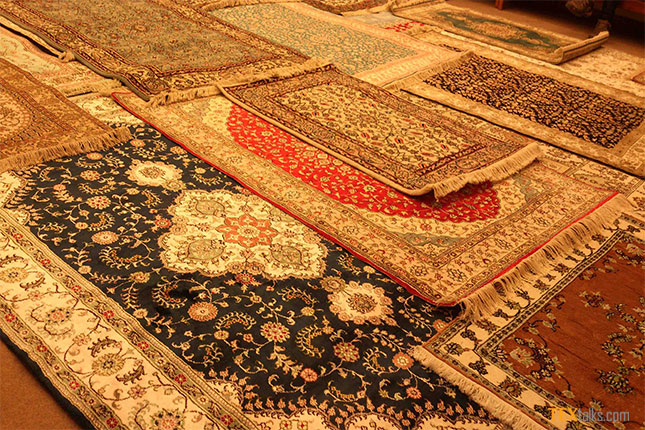The Pakistan Carpet Manufacturers and Exporters Association (PCMEA) expressing great concern over the decision of the State Bank to deduct from 3 to 9 percent on the receipt of exported products from abroad after the specified period of payment said that such stringent regulations would threaten the survival of the already disadvantaged handloom carpet industry.
Usman Ashraf, Senior Vice Chairman of PCMEA in a letter written to the Governor State Bank on the circular issued by the State Bank of Pakistan regarding the realization of export proceeds that the status of the handloom carpet industry as a special industry should be restored by removing the requirement of 120 days of payment from abroad on export contracts in which there is a discount of 180 to 270 days.
He further said the Pakistan Carpet Manufacturers and Exporters Association has been working to promote Pakistani carpets worldwide for decades, but tightening State Bank regulations, other issues and constraints have severely hampered the industry’s ability to export while the handloom carpet industry is already in dire straits and by issuing such circulars, more problems are being created for it. Expressing serious concern over the circular, he said that it proposed a deduction to the exporters related to delayed recovery of export proceeds, which would prove to be a killer poison for the industry. “3% deduction for delay of export proceeding up to 30 days, 6% for delay of 31 to 60 days and 9% for more than 60 days is a burden on export industries,” he added.
The letter said that the issue of unutilized advance payments is also a challenge and therefore it is demanded that Finance Minister Ishaq Dar, Commerce Minister Naveed Qamar, and State Bank Governor Jameel Ahmed should give time to stakeholders for a meeting. The letter further stated that after a long time, the exports of our industry have improved which will help in earning valuable foreign exchange for Pakistan. Handmade carpets are luxury items that not only go through various stages in manufacturing but also take time to export and collect payment.
It is further stated that our industry has to work tirelessly to compete with other carpet-exporting countries such as India and Nepal as the governments there provide incentives and facilities. “It should also be kept in mind that the hand-woven carpet industry provides employment opportunities to the poorest population of the country, especially the rural areas; therefore, facilities and privileges should be given to this industry, which this industry can also prove helpful in preventing urbanization,” he concluded.



